

“EcoLur” NGO team recently met with staff from Tavush Regional Administration to discuss the environmental and socio-economic challenges in the region.
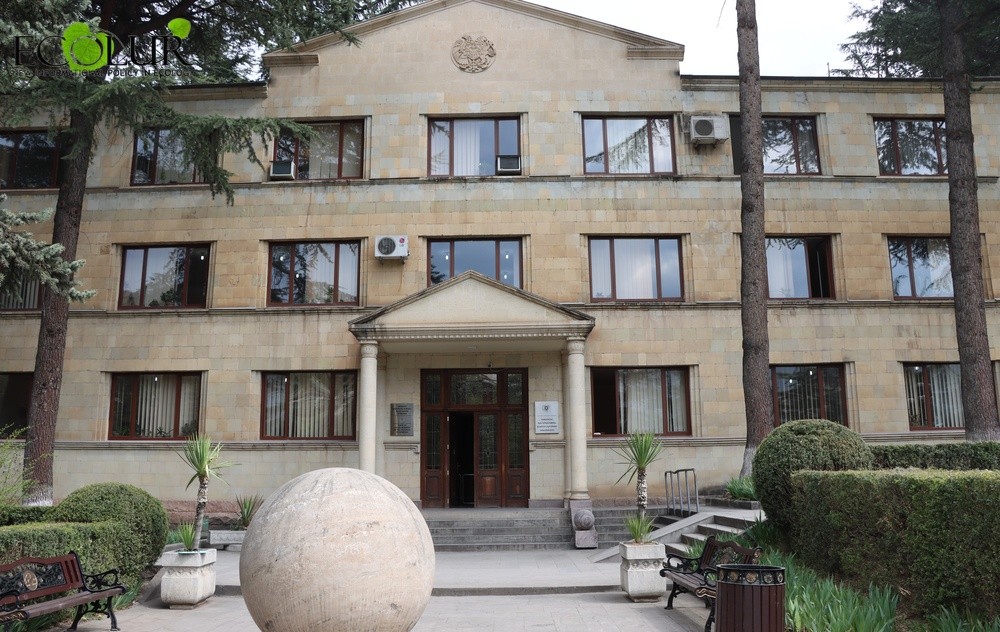
Participants of the meeting included Head of Department of Agriculture and Environmental Protection of Tavush Regional Administration Vagharshak Sukoyan, Head of Department of Territorial Administration and Local Self-Government Aghabek Galstyan, Head of Development Programs Planning and Implementation Division Gurgen Harutyunyan, Head of Mobilization Preparation Division Viktor Abazyan, and Chief Specialist of Staff Management, Document Flow and Public Relations Department Valer Ordyan.
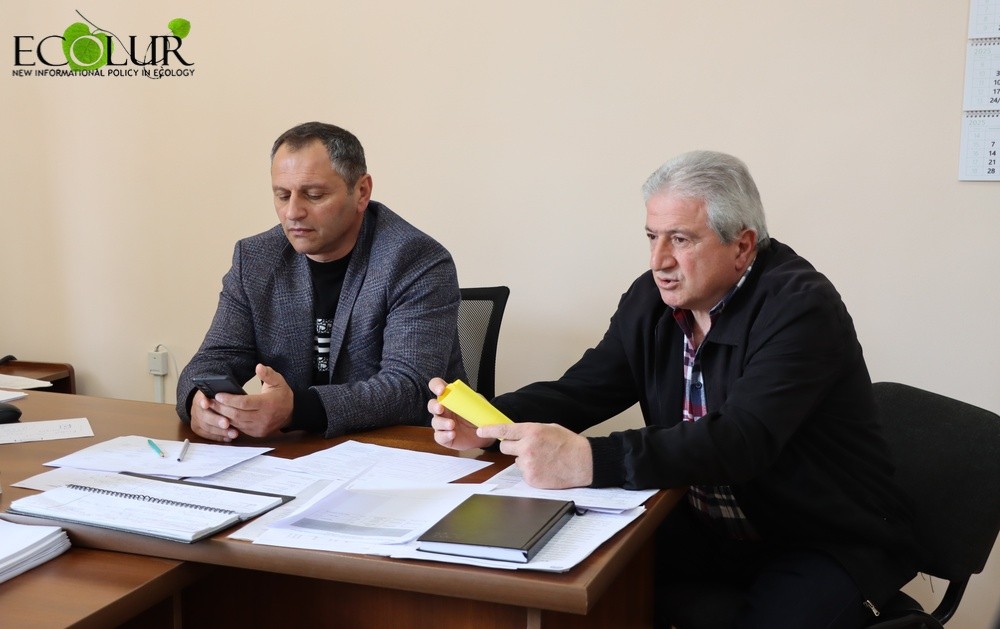
The regional administration staff presented several ongoing programs in the region, emphasizing the modernization of agricultural practices under climate change conditions, improving energy efficiency, and ensuring population safety.
Gurgen Harutyunyan, Head of Development Programs Planning and Implementation Division, reported that in recent years, energy-efficient renovation works have been carried out on buildings in the region through state subsidy programs. In Dilijan, 11 buildings have already been modernized: walls were insulated, windows and doors were replaced, and roofs were repaired. Similar programs have also been implemented in Ijevan and Berd, involving 2 and 1 buildings respectively. A new phase of the program is planned for 2025 in Aygehovit and Kayanavan. Part of the program’s funding is provided by the community, part is co-financed through a UNDP project, and the majority is covered by the state. “15% is co-financed by the UN program, about 70-75% comes from the state. It is mandatory that the residents of the apartment buildings also contribute. In the case of energy-efficient programs, the residents’ share is 5%; for regular renovations or roofs, it’s 10%. The community’s contribution is about 5%,” Harutyunyan noted.
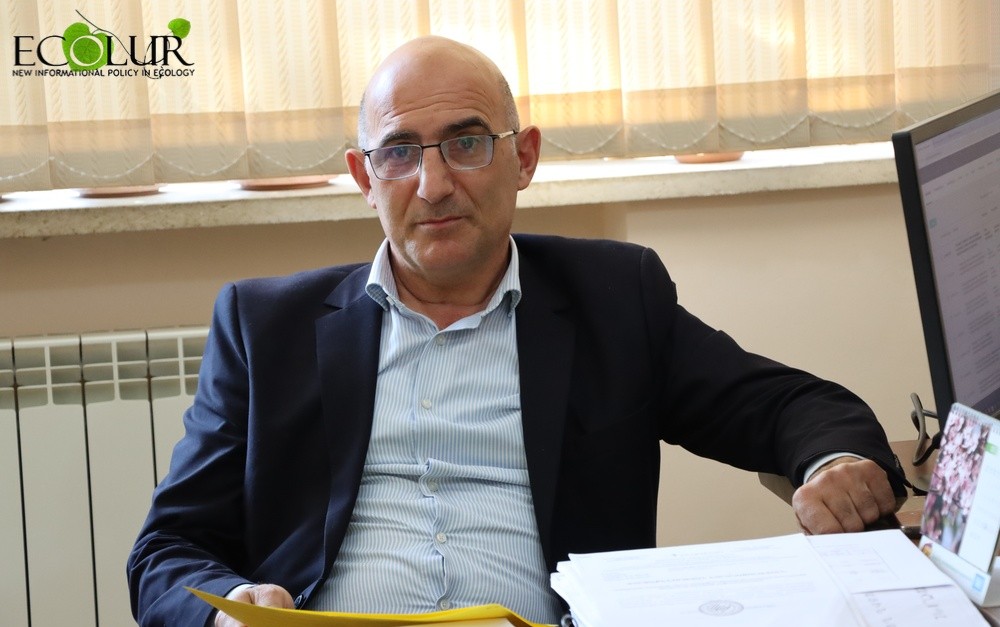
Addressing agricultural reforms, Vagharshak Sukoyan, Head of Department of Agriculture and Environmental Protection, highlighted the importance of introducing drip irrigation systems. He noted that due to climate change, recurring droughts in Tavush have necessitated the adoption of new water-saving approaches, particularly the use of drip irrigation. On the other hand, climate change has also made it possible to cultivate subtropical crops, such as kiwi, and to establish intensive orchards. “With state support, pomegranate and cornelian cherry orchards have been established in the communities of Ijevan, Berkaber, and Khashtarak, covering about 6 hectares and involving over 90 beneficiaries. The programs are ongoing and expanding into adjacent communities,” Sukoyan said. According to him, the government supports the introduction of drip irrigation systems in household plots: “95% is funded by the government, and 5% by the community. In the future, export and trade centers will also be established. Cold storage facilities will be available. We emphasize the continuity of the value chain—storage, refrigeration—to avoid marketing issues later,” he stressed.
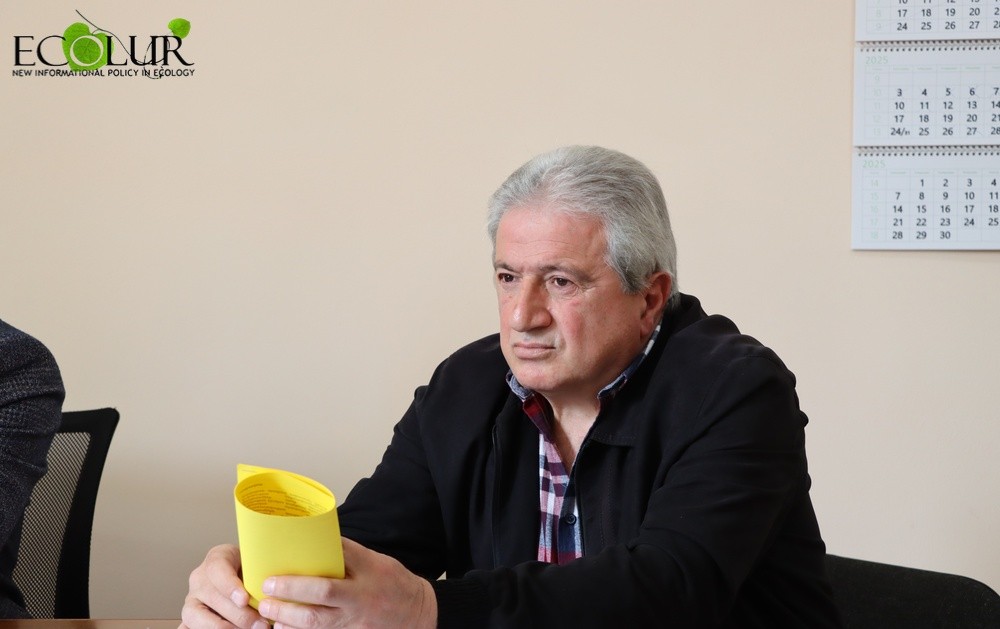
He also noted the activation of intensive horticulture, especially in low-risk areas such as Bagratashen and Debedavan. In 2024, 24 hectares of new orchards were established. Simultaneously, programs are being implemented to install anti-hail nets and provide agricultural insurance. These insurance programs now cover not only frost and hail but also drought. The regional administration has also submitted a proposal to include persimmons in the list of insurable crops.
Aghabek Galstyan, Head of Department of Territorial Administration and Local Self-Government, addressed the issue of water resources. “Water quantity has always been a problem. Our region used to be supplied by the Joğaz system, which is not yet built. Irrigation is best organized in the regions of Noyemberyan and Berd—by gravity flow. In other areas, mechanical solutions are used,” he said.
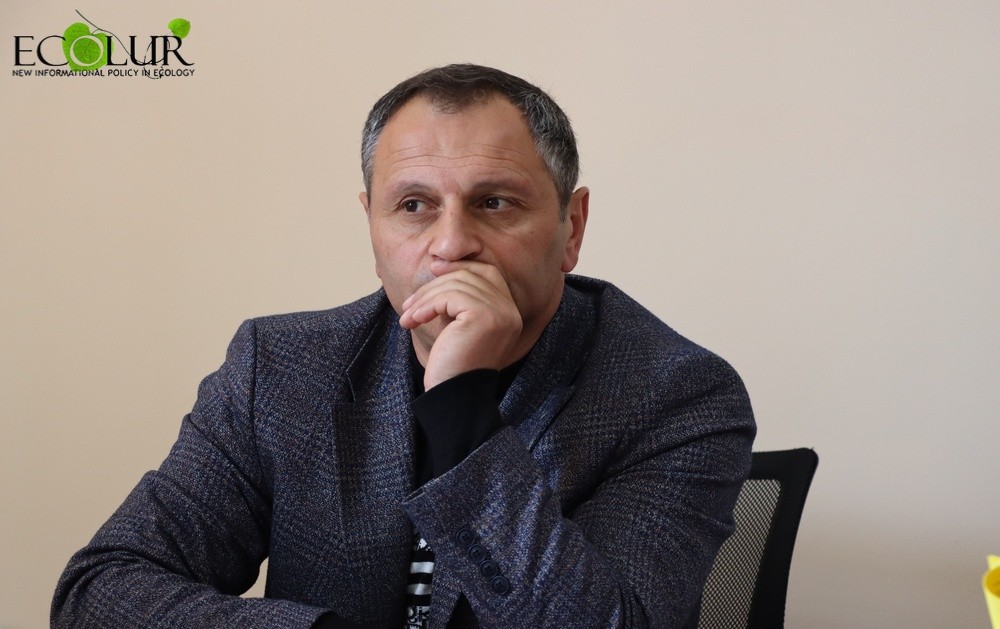
Gurgen Harutyunyan added that irrigation infrastructure renovation is being carried out in the region with direct support from the Hovnanian Foundation. Subsidy programs in 2024 and 2025 include a number of projects: modernization of the Norashen, Bagratashen, Chinari, Aygehovit, and Vazashen systems. “We’ve renovated the water pipeline and intake structures approaching the Norashen irrigation system reservoir, overhauled the Bagratashen pumping station, replaced pipes, and installed new pumps. In Chinari, we implemented a program to reconstruct the irrigation system and pumping station and to replace pipelines. Similar work was done in Aygehovit and Vazashen in the Ijevan region,” he said.
Regarding the operation of small hydropower plants (HPPs), the participants mentioned that no problems have been recorded so far. During the irrigation season, water is prioritized for irrigation needs. As for HPPs’ social responsibility, Harutyunyan noted that communities can independently initiate cooperation and involve HPPs in subsidy or other local programs.
Last year’s disaster caused by the flooding of the Aghstev River was also discussed. According to Aghabek Galstyan, the damages were significant in agriculture, businesses, and housing. The state provided compensation based on assessments and conclusions. The evaluation of damage to orchards is ongoing to determine whether they can be restored.
“In terms of housing, each family received funding for renovations. Two cases were excluded due to serious documentation issues. All business damages were assessed and submitted to the Ministry of Economy, and state support was provided. In agriculture, mainly the Noyemberyan section and orchards were affected. Initially, we applied to the government’s republican commission for compensation for orchards that could be restored. For those that cannot be restored, compensation was postponed until the trees are examined to determine whether they are viable. Households with non-viable orchards will receive lower compensation. All damages related to livestock, beehives, poultry, and household plots were compensated based on official records. Compensation was also provided for non-residential buildings such as barns, henhouses, and garden houses,” he said.
Last year, the government allocated 70 million AMD for riverbank protection measures along dangerous sections of the Aghstev River. These measures included cleaning the riverbed and repairing retaining walls.
Viktor Abazyan, Head of Mobilization Preparation Division, presented information related to civil protection, emphasizing that new warning systems are being installed in the region's communities. “The communities are equipped with alarm systems, but the sound coverage of existing sirens does not fully reach all residents. The region received 85 new sirens from Yerevan Municipality, which will be distributed among communities. The residents are being informed about shelter locations and emergency procedures through information leaflets. Planned drills are being conducted by the regional rescue department in all settlements, involving schools, kindergartens, and other institutions. The drills mainly focus on behavior rules during earthquakes, air raid warnings, and enemy attacks,” he said.
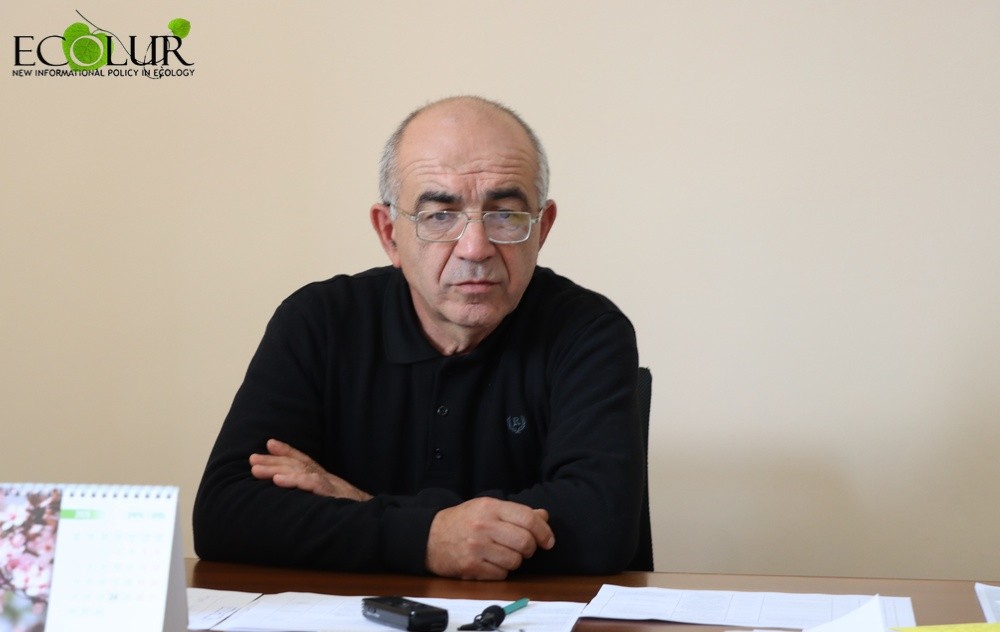
Regarding alert systems in case of river flooding, he added: “There is no specific flood alert system. Measurements and monitoring are carried out at hydrological stations, and daily water level reports are sent. Hydrological centers transmit this information to their leadership—the Ministry of Environment—and the regional rescue department also receives it. If critical levels are reached, communities are informed to evacuate people and property from riverbank buildings.”
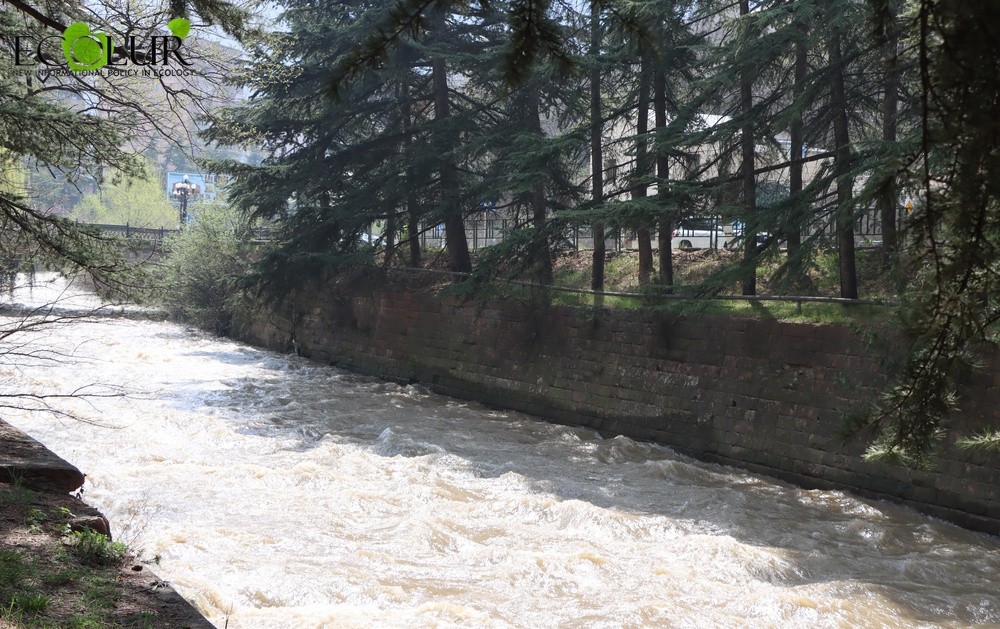
The issue of Aghstev River pollution was also raised during the meeting. According to Valer Ordyan, Chief Specialist of the Staff Management, Document Flow and Public Relations Department, Ijevan Municipality monitors economic entities along the Aghstev using surveillance cameras to prevent illegal dumping. “The municipality directly works with the businesses. Cameras are installed along the river, and they are under constant supervision. If a violation is detected, the municipality contacts the responsible business, and direct action is taken,” he said.
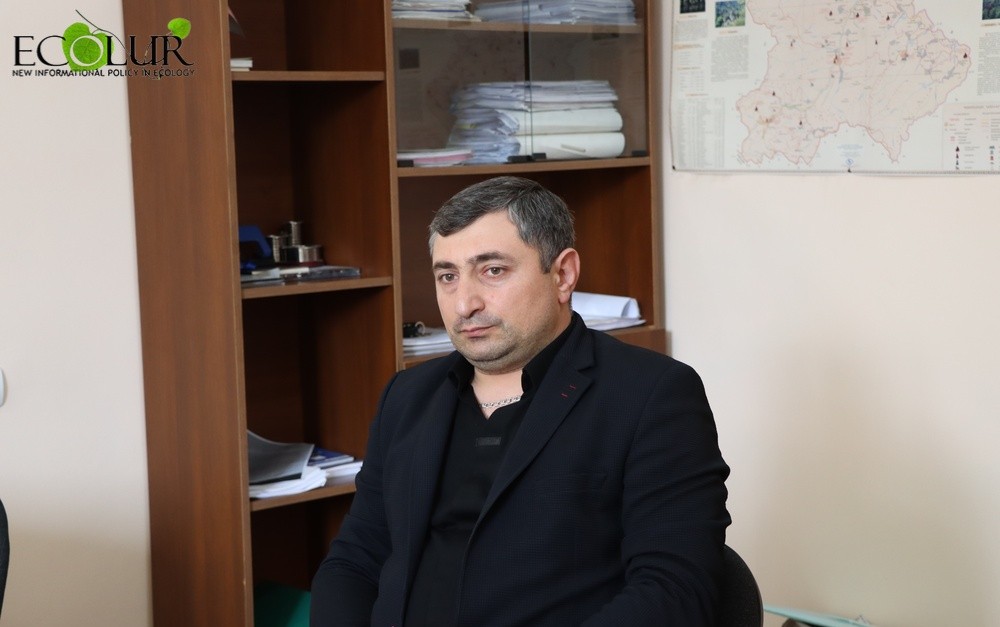
The potential for renewable energy development in Tavush was also discussed. Aghabek Galstyan mentioned that, according to international assessments, the region is in a relatively weak position in terms of the number of sunny days.
July 24, 2025 at 14:45
